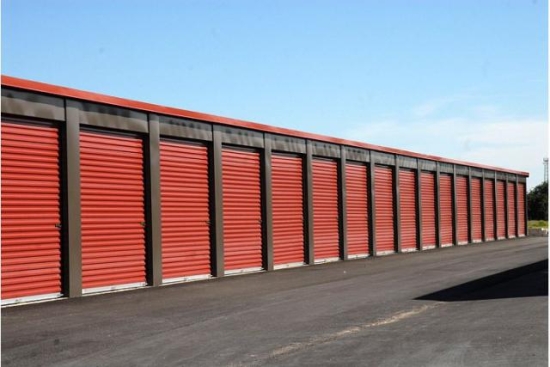It started in the United States, spread to Australia, and landed in Britain less than 25 years ago. Now there are around 1,000 self-storage sites across the UK providing more than 30m sq ft of space.

But hidden among the forgotten furniture and the contents of broken homes, a new breed of entrepreneur has moved in to take advantage of the short-notice periods and low overheads that characterise the rough and ready space offered by the self-storage industry.
More and more internet traders — selling everything from cosmetics to crockery — are shunning conventional industrial units, claims Rennie Schafer, chief executive of the Self-Storage Association UK.
“For businesses it’s a flexible way they can store their goods and their materials. And they only pay for the storage they need rather than a warehouse which could be half full one day and overflowing the next.”
With rents averaging £20 a year per sq ft, it’s estimated that 42 per cent of all UK storage space last year was taken up by businesses. That compares with 39 per cent for 2012. There are other benefits. E-commerce firms and small traders do not have to pay business rates on any space they use. That burden, says the Valuation Office Agency (VOA), falls on the self-storage company itself.
Ollie Saunders is head of self-storage at accountancy group Deloitte. “Today, in some stores, every other unit is a commercial customer,” he admits. “Businesses no longer need to rent a dodgy lock-up garage down a side alley, instead they use a self-storage facility where they can also get a cappuccino in reception.”
In fact, many storage centres also provide a front-of-house reception area to take deliveries. Mike McGuire of Scottish self-storage company, Len Lothian, claims this is a major attraction for firms who rent his units. “We accept deliveries on their behalf and sign for and take in the goods into store while they are out and about running their business and making money,” said McGuire.
In Balham, south-west London, Helen Cockle and Helen Gilbert moved their children’s clothes business, the Little Legs Company, to a single unit in a Big Yellow storage centre when their stock outgrew the kitchen table. Three years later their business has expanded into a space almost 10 times the size.
Hiren Patel, the boss of e-commerce gift company Sent 4 U, credits the adaptability of self-storage for his firm’s even greater success. In the run-up to Christmas his 20 staff were working round the clock parcelling up 12,000 toys, party goods, diaries, cards and Santa outfits a day.
He uses different storage units for different parts of his operation. “It’s a kind of depot,” he says. “We keep our distribution centre here to use the flexible space and save money. And it’s very convenient to be here. It gives you choice, if the business isn’t performing you can give one month’s notice and move on, or you can reduce your space so it gives you a unique flexibility.”
Traditionally, storage centres are located on the outskirts of towns and cities or on industrial estates. While they’re never going to offer business startups and e-commerce traders a prestigious address, they do provide no frills facilities at minimum risk.